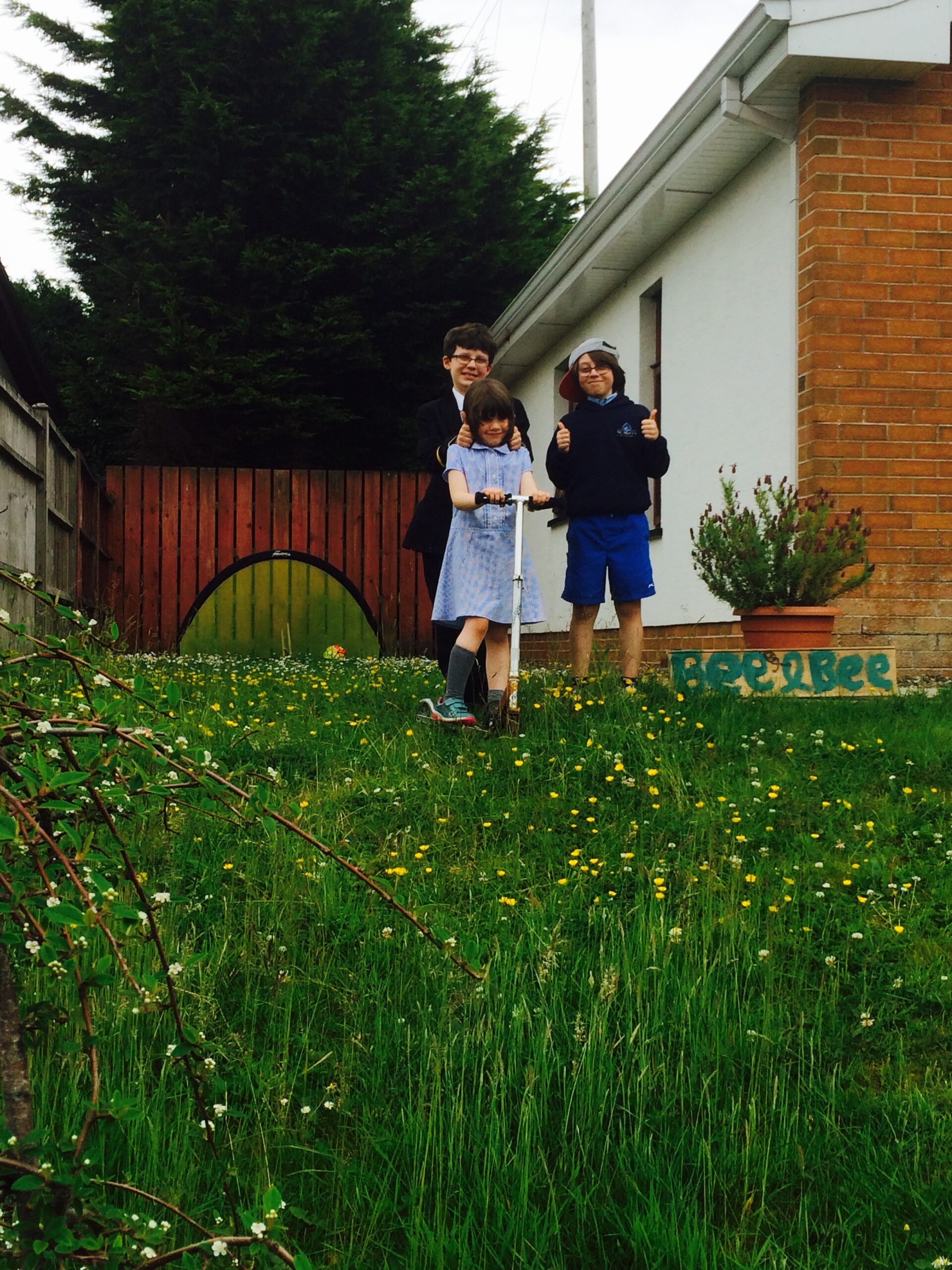Today was pretty much all about bees! I had a half day at school, so was able to walk Rosie (our rescue greyhound) with my mum. We went to our patch, our ‘wasteland’, originally to see if we could spot the buzzard as it usually flies around between 12-1pm, but I kind of dilly-dallied and so we were late leaving the house and so, yep, we missed the buzzard. However, all was not lost as we saw lots of other buzzers! The dog roses were hiving with bees (apologies, I have a love of puns)! We saw quite a few species – honey bees, carder bees, white-tailed bumblebee and a red-tailed bumblebee. I actually didn’t realise there were so many bee species until we started the #greatbritishbeecount (organised by http://www.foe.co.uk) It’s been great fun counting and adding our bees with the mobile phone app.

I was pretty bedazzled by the sounds and their speed, but I wanted to learn more about bees, in particular bumble bees and how they affect ecology and whether or not we need to be worried about our bombus population. I was pretty affected by what I read.
Bees are in trouble! Modern farming and super tidy gardens, have left bee populations struggling to survive.Bumblebees emerge earlier than their honeybee cousins, but as they do not carry/store large amounts of honey they can go hungry quickly when their supply of flowers change drastically. Over the last few decades, intensive farming and keen ‘gardeners’ mowing and strimming every last centimetre of their boring lawns, puttting down miles of ugly decking and patio have put huge pressure on our beautiful be(e)st friends! Bees go hungry and die, some even ‘die out’ – we have lost two species of bumblebee here in the Uk: The Cullem’s bumblebee (Bombus cullumanus) in 1941 and the Short-haired bumblebee (Bombus subterraneus) was last recorded in 1988. Two other species are in deep decline (Great yellow bumblebee and Shrill carder bee) and this makes me incredibly sad and angry! I want to go over to my neighbour with his strimmer and tell him to stop, his sterile garden is killing wildlife. He, along with all his kind, are culpable for this destruction.
Without bees we lose our free bee service – pollinating farmers crops and orchards. Low bee numbers can cause decreased crop yield and also can impact on the survival of our wildflowers. These are decreasing too.
So what can we do?!
‘Bee’ part of the solution. You can help bees by making your garden pollinator friendly with lots of flowers like buddelia, or sow a small wildflower patch. If you haven’t got a garden, you can pot some bee friendlies on your windowsill or yard. Every little bit can help.
There are great projects to help our wildlife such as the fantastic ‘ Magnificent Meadows’ project, which has been really successful here in Fermanagh and the ‘Don’t Mow Let it Grow’ project in Co.Antrim. Every time we see one of these signs (pictured below) we get really excited and start cheering, this means things are getting better!

This afternoon we found a stranded white-tailed bumblebee on the ground of our garden. Mum put some sugar water on a spoon and we could see it’s little probiscis was grateful. We popped it on a leaf to rest and was gone when we went back to look. Hooray!
I hope you enjoyed reading a little bit about bees. Bee good to bees please!
Thank you for reading
Dara
Some links:
http://www.wildlifetrusts.org/

9 Responses
Great blog about bees, my family hasn’t cut our front lawn and now it’s full of wild flowers and bees ( when it’s not raining)
Hi Alex and thanks! Your blog is fantastic. Dara
Hiya Dara,
In our neck of the woods we have lots of moorlands. I always buy heather honey from our local beekeeper. Just like you, he points out the importance of keeping bees happy and healthy. I also like gardens to be wild and flowery, I see too many fenced and paved ‘gardens’ around me. Not good for birds, bees and butterflies (and humans by the way). I like the photo’s and how you play with words Dara!
Hive Five 🙂
Hi Marjolijn! Thank you so much! We share the same attitudes then! You are really kind.
Dara
Hi Dara,
Excellent blog posts – really interesting to read your experiences. Keep it up!
Best wishes
Thank you
Hi Dara, I love this reading your blog! Like you I had no idea about the many kinds of bees, I am learning as I read 🙂 Bats fascinate me too. I have a photo I took in Costa Rica of a bat sleeping in a tree, give me some time to get it printed and I will pop it in the mail for you. It’s one of my favourite photos that I want to share with you. Look forward to reading and learning from you xo
Thank you very much. I loved the book you sent us. Lots of facts to learn. ☺️
As from today the pesticide Imidacloprid is forbidden in the Netherlands. It is thought to be responsible for bee extinction. A little victory.
No need to reply, just wanted to share this info. Enjoy your vacation!